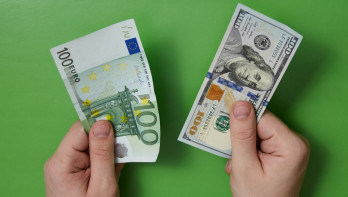Opinion Joost Derks
Brazil as a cautionary tale for central bankers
While Western central banks are cutting interest rates, the Brazilian central bank is opting for a completely different course. This contrary move is a clear signal that it is dangerous to declare victory too quickly in the fight against inflation.
In less than four years, the status of Roberto Campos Neto has changed from a monetary trendsetter to a national scapegoat. Neto took the helm at the Brazilian central bank just before it officially became independent in February 2021. In view of the rising inflation, he raised the official interest rate from 2% to 2.75% a month later. He was way ahead of his time. For example, the European Central Bank only dared to raise the policy rate much later. By the time the first European rate hike finally came, the Brazilian rate had almost reached a ceiling of 13.75%. Thanks to Neto's bold interest rate hikes, Brazilian inflation then dropped from over 12% to just over 3% in the summer of 2023.
Way ahead of his time
Because Neto acted so quickly, the Banco Central do Brazil (BCB) could also start reducing interest rates early. The first rate cut came about a year and a half ago. At that time, central banks in many Western countries were still working hard to control inflation. However, Neto will not look back very happily on the past few years. In June of this year, the Brazilian inflation target was set at 3%, with a range of 1.5%. But since spring, inflation has slowly but steadily started to rise. In November, inflation of 4.9% has even clearly exceeded the top level of the range.
Against the current
For Neto and the BCB, this was a signal to clearly raise the policy rate. The policy rate was raised by a whopping 100 basis points to 12.25%. In a period when almost all Western central banks were lowering interest rates slightly, Brazil is once again swimming against the current. The rate hike has brought Neto quite a bit of criticism. In particular, the president who took office early last year, Luiz Inazio Lula da Silva - nicknamed Lula - accuses him of unnecessarily putting a high brake on economic growth with a very high interest rate. Growth is at risk of falling from almost 3% this year to just over 2% in 2025.
Real in a tough spot
This accusation is particularly painful because the loose fiscal policy of the same Lula is a major reason for the rising inflation. In the year after Neto implemented his progressive interest rate policy, the real has risen by over 20% against the dollar. That gain has now evaporated. Partly because the Brazilian interest rate fell much earlier and harder than in the Western world, the currency has plummeted by 19% in 2024 alone. It remains to be seen whether Neto's rate hike is sufficient to turn the tide for the real. Currency traders pay at least as much attention to the political course taken by Lula and Trump as they do to the measures of the trendsetting BCB.

Joost Derks
© DCA Market Intelligence. Op deze marktinformatie berust auteursrecht. Het is niet toegestaan de inhoud te vermenigvuldigen, distribueren, verspreiden of tegen vergoeding beschikbaar te stellen aan derden, in welke vorm dan ook, zonder de uitdrukkelijke, schriftelijke, toestemming van DCA Market Intelligence.



